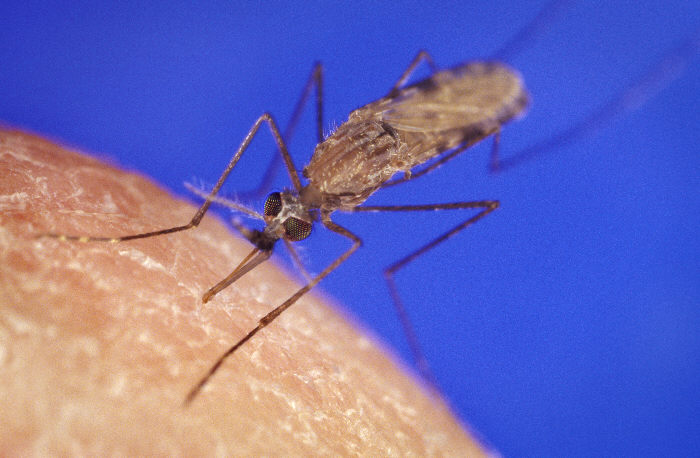A genetic tweak that leads to mosquitoes producing mainly male offspring has the potential to rapidly knock back populations of the disease spreading insect.
 UK researcher developed a system which interferes with male mosquitoes’ ability to pass on the X chromosome — necessary for creating female offspring — in their sperm.
UK researcher developed a system which interferes with male mosquitoes’ ability to pass on the X chromosome — necessary for creating female offspring — in their sperm.
When introduced to caged wild-type mosquitoes, the system was able to produce fertile mosquitoes that produce more than 95% male offspring and effectively suppresses their population size. The authors suggest that their research, published this week in Nature Communications, may provide a platform for the use of genetic manipulation to control the spread of pests and diseases such as malaria.
Our colleagues at the UK SMC collected the following expert commentary. Feel free to use these quotes in your reporting. If you would like to contact a New Zealand expert, please contact the SMC (04 499 5476; smc@sciencemediacentre.co.nz).
Dr Michael Bonsall, Reader in Zoology at the University of Oxford, said:
“This is super cool work. Reducing mating potential of mosquitoes by modifying sperm is a population suppression technology – the work demonstrates just how important these sorts of GM technologies are at reducing insect vector population sizes.
“This has important implications for limiting the spread of malaria. It will be very exciting to see how this specific technology is now taken forward.
“It’s important to note this piece of work is at a very early stage, and is a long way from being deployed. Before a modified mosquito could be released into the environment, it would have to pass through a very rigorous regulatory framework. That framework is firmly in place in the UK.”
“In an intervention like this we have to weigh up the environmental effects against the human health effects. On the one hand, this species of mosquito is a stagnant water breeder, eaten by fish but not relied on as a food source – fish have a very varied diet. Similarly it doesn’t eat anything that has to be kept in check. On the other hand, a million children die every year from malaria. We can’t afford not to take this approach seriously.”
Dr Luke Alphey, Group Leader in the Vector-Borne Viral Diseases Programme at The Pirbright Institute, said:
“The authors have successfully engineered a genetic system into mosquitoes that leads to almost all offspring being male, rather than the normal situation where about half are female. This would reduce the number of females and, since males don’t lay eggs, over time reduce or even eliminate a target mosquito population, as the authors show in the laboratory.
“After further testing these engineered mosquitoes might well be useful in the field, so this is a big step forwards. However the overall goal of this research programme is even more ambitious – to develop a version of this genetic system that will spread itself through the target species, removing females and causing population crash or extinction as it goes.
“If this species were to suffer a population crash, it’s hard to see how significant negative side-effects might arise. The mosquitoes are not keystone species in their ecosystems. No other animal is dependent on them for food, and we don’t rely on mosquitoes to eat anything. They don’t seem to keep out anything more dangerous, not least because they are the most dangerous thing around. And this technique only affects one species, Anopheles gambiae, among over three thousand known species of mosquitoes.
“If we rely instead on pesticide control we would likely kill non-malarial mosquitoes and many other insects besides. The genetic approach is much more precise.
“As well as considering potential dangers of controlling this species of mosquito, I would equally consider the dangers of not intervening. Malaria is a major killer and if we’re serious about saving lives it’s going to take scientific innovation like this.”